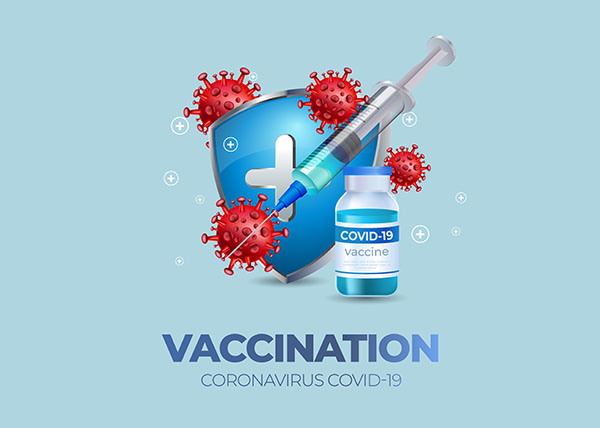Overconsumption of high fructose corn syrup-rich foods causes health problems, addiction
03/12/2024 / By Olivia Cook

Studies show that overconsumption of high fructose corn syrup (HFCS) causes a variety of health problems. One study even found that overconsumption may cause behavioral reactions similar to those produced by cocaine use.
HFCS was first developed in 1957 by biochemists Richard O. Marshall and Earl R. Kool. The pair discovered an enzyme capable of isomerizing dextrose to fructose. The process of producing it efficiently and economically was introduced about 20 years later by Japanese scientists.
Also known as glucose-fructose syrup or high fructose maize syrup, HFCS is a liquid sweetener made from corn starch and a preservative made by changing the carbohydrate glucose in corn starch to another form of sugar – fructose. The end product is a combination of glucose and fructose that extends the shelf life of processed foods and is cheaper to use than table sugar.
The ease of production and economic benefits of introducing HFCS made it a popular choice in the United States, and by the 1980s it became the dominant sweetener in the country. The U.S. is even reported as being the greatest consumer and producer alike of HFCS, with the average American consuming around 55 pounds worth of HFCS per year, far more than any other country.
HFCS is found in most foods that have added sugars and is a very common ingredient in processed foods. Most of the HFCS people eat or drink comes in the form of sodas and sweetened fruit drinks. HFCS can also be found in baked goods, breakfast cereals, boxed desserts, canned fruits, flavored yogurts and in condiments like ketchup, jams and jellies.
Possible health dangers of high fructose corn syrup
Brain health: A study by life sciences experts from the University of California, Los Angeles found that fructose “damages communication between brain cells and increases toxic molecules in the brain and that a long-term high-fructose diet diminishes the brain’s ability to learn and remember information.”
Addiction expert Dr. Francesco Leri of the University of Guelph in Canada further pointed out that HFCS overconsumption alters brain function and can create a negative feedback loop because of evidence that humans may have “a shared vulnerability to develop preferences for sweet foods” in the same way humans are susceptible to being addicted to harmful drugs like cocaine.
Teeth health: High intakes of sugar are bad for the teeth and any general dentist will say that eating HFCS is even worse. HFCS causes more intense blood fructose spikes than white sugar does and this causes more minerals to be pulled from the teeth and bones. Losing these minerals weakens the tooth and leaves it open for decay.
HFCS causes more intense blood sugar spikes in the body, which then continually pulls minerals from the teeth and bones in order to restore balance in the body. Since the teeth are losing more minerals, they are more likely to develop tooth decay.
Heart health: Some studies suggest that high intake of HFCS may lead to metabolic syndrome, also known as insulin resistance syndrome or pre-diabetes. Insulin resistance leads to diabetes. (Related: High fructose corn syrup and diabetes.)
The American Heart Association (AMA) describes it as a “cluster of metabolic disorders that include high blood pressure, high fasting glucose levels and central, visceral, abdominal obesity (a waist size of more than 40 inches in men and more than 35 inches in women), which, combined, increase the risk of cardiovascular diseases, such as heart attack or stroke and Type 2 diabetes.
Digestive health: HFCS can cause bloating and gas. This is because large amounts of HFCS feed the natural bacteria in our intestines, which produce gas. To reduce gas, avoid consuming large amounts of HFCS by choosing water and 100 percent fruit juice instead of soft drinks (soda) and sweetened fruit beverages.
Fructose in the diet may worsen inflammatory bowel disease (IBD) – an umbrella term for several conditions that feature chronic inflammation of the digestive tract.
According to the Centers for Disease Control and Prevention, the number of adults receiving an IBD diagnosis each year in the United States increased from two million in 1999 to three million in 2015.
Obesity: Researchers in a 2017 literature review found evidence that consuming excessive amounts of HFCS may lead to a greater risk of obesity because of the extra calories it adds to our diet. If you eat a lot of food or drink a lot of beverages with HFCS, you may gain weight.
Furthermore, the brain’s heightened risk of being addicted to sweets, as indicated by Leri’s research, could also explain, at least in part, the global increase in obesity.
Liver health: According to the National Institutes of Health, HFCS consumption could lead to an increased risk of non-alcoholic fatty liver disease wherein the body stores too much fat in the liver cells.
Fatty liver disease can lead to liver damage and inflammation, which can lead to non-alcoholic steatohepatitis, a serious condition that can cause liver scarring, liver cancer and liver failure.
Immune health: A study in Nature Communications suggests that eating a diet high in HFCS may prevent the immune system from functioning properly.
Countless other articles provide even more evidence regarding the risks of HCFS, as each person’s body handles the sweet differently than table sugar. Those concerned about their health are advised to play it smart and to cut back on all added sugars, regardless of type.
Our mission is to empower, uplift and defend the lives of every human being across our planet, and we’re doing it by building the infrastructure of human freedom. Find out about how we’re doing this using cutting-edge AI technology at this link. Support our ongoing efforts by shopping at HealthRangerStore.com, and thank you for your support!
Watch this old news report featuring multiple experts discussing the dangers of high fructose corn syrup.
This video is from the HealthRanger7 channel at Brighteon.com.
More related stories:
Study reveals link between fructose consumption and high blood pressure.
Study: High fructose diets can negatively affect fat metabolism in the liver.
Consuming cancer tastes SO good: High fructose corn syrup is “cancer” food, increases tumor growth.
Brain damaging heavy metal MERCURY found in grocery products made with high fructose corn syrup.
Sources include:
Submit a correction >>
Tagged Under:
added sugar, addiction, brain damage, brain health, dangerous, diet, digestive health, food science, frankenfood, health science, heart disease, heart health, HFCS, high-fructose corn syrup, immune system, liver damage, obesity, oral health, stop eating poison, sugar, sweeteners, toxic ingredients
This article may contain statements that reflect the opinion of the author
RECENT NEWS & ARTICLES
HeartDisease.News is a fact-based public education website published by Heart Disease News Features, LLC.
All content copyright © 2018 by Heart Disease News Features, LLC.
Contact Us with Tips or Corrections
All trademarks, registered trademarks and servicemarks mentioned on this site are the property of their respective owners.




















